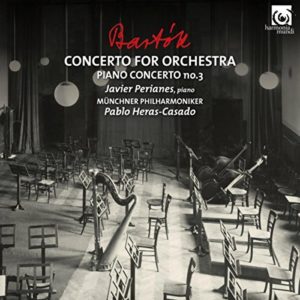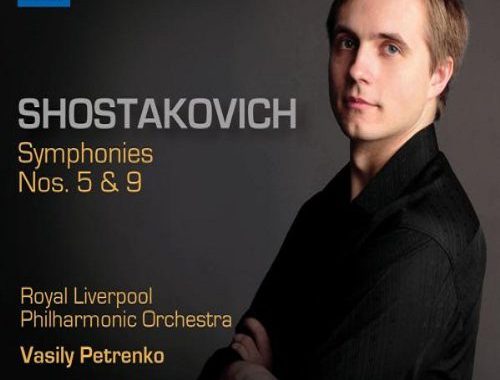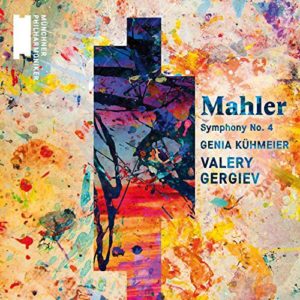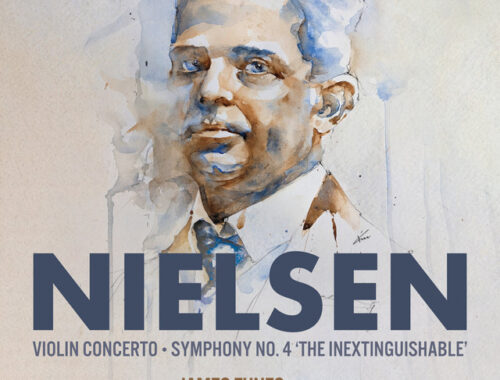GRAMOPHONE Review: Bartok Concerto for Orchestra/Piano Concerto No 3 – Javier Perianes/Münchner Philharmoniker Pablo Heras-Casado
 Late, late, Bartok – the pair of masterpieces that could and would have turned his fortunes around during his final years exiled in America. Financially embarrassed, terminally ill, it was not to be. Conductor and soloist are Spanish here, the orchestra German, and in that regard there is immediately an issue as we move from the mellow lyricism of the Third Piano Concerto to the multi-faceted Concerto for Orchestra.
Late, late, Bartok – the pair of masterpieces that could and would have turned his fortunes around during his final years exiled in America. Financially embarrassed, terminally ill, it was not to be. Conductor and soloist are Spanish here, the orchestra German, and in that regard there is immediately an issue as we move from the mellow lyricism of the Third Piano Concerto to the multi-faceted Concerto for Orchestra.
The Munich Philharmonic don’t have quite the right “tinta” for this music. The sound is noble, the playing poetic especially among the extensively showcased woodwinds. The second movement “Game of the Couples” – paced at a jaunty skip and jump – is full of personality as are those lyric diversions (urban takes on Hungarian folksong) that provide haunting departures from the rough and tumble of the outer movements and the extraordinary Elegie. But the celebrated German blend, the “cover”, of so much of the string playing does little for the searing exhortations which punctuate the Elegie’s return to what sounds remarkably like Duke Bluebeard’s “Lake of Tears” hidden as it is behind the sixth door of his castle. One wants them raw and unvarnished, cries from the heart. Equally the cut and thrust of a Reiner or a Solti is conspicuously lacking in the whirling dances of the powerhouse finale. The string fugue emanating from the raunchy trumpet tune is frankly flabby and “academic”. So not really competitive in today’s extensive catalogue.
The Third Piano Concerto fares better on account of its mellowness. This is such a departure from the brazen primitivism and percussiveness of the first two concertos – it is Bartok in repose contemplating his homeland from afar, half-remembered melodies given a singing expressiveness to which Javier Perianes brings great warmth. There are the Bachian allusions, too, which find fulfilment in the slow movement – one of the composer’s most beautiful and reflective creations. There is, of course, the signature insect-rustling night music at its heart but that only heightens the return of the Bachian chorale with keyboard and orchestral winds in glorious accord, gradually evolving into something as deeply passionate as ever he wrote. One need not ask for whom the tam-tam tolls here.
The two Spaniards despatch the finale’s lust for life with the requisite panache, Bartok’s remission evident in the resilience of the counterpoint. Still, though, there’s an element of opaqueness about the overall sound which means that individual lines don’t ring as keenly as they might. Plenty of better alternatives, I fear.
You May Also Like

A Conversation With VASILY PETRENKO: Shostakovich Cycle 5, 9 and 11
02/09/2010
GRAMOPHONE Review: Mahler Symphony No. 4 – Munich Philharmonic/Valery Gergiev
06/12/2017
